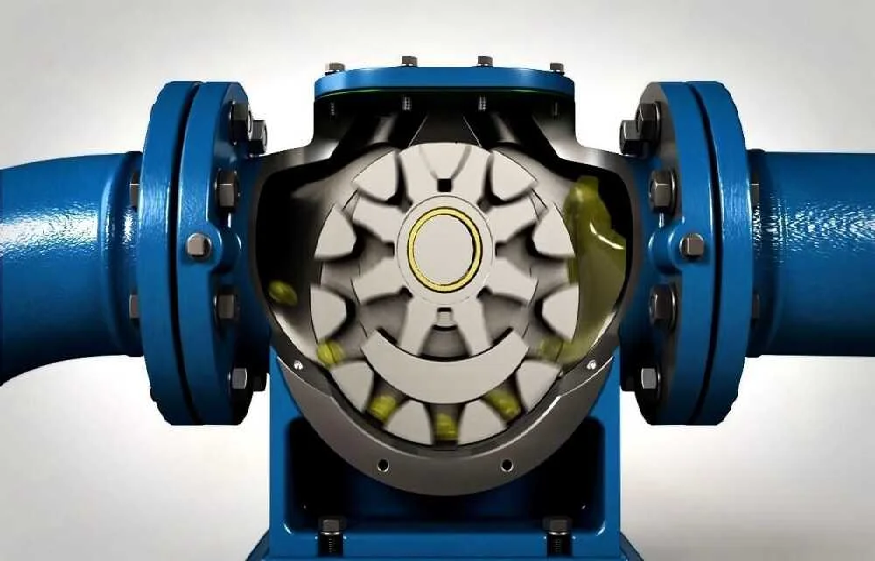Chemical gear pumps are a critical component in industries that require the precise transfer of various chemicals and fluids. Their ability to handle demanding applications with accuracy and reliability makes them an indispensable tool in sectors such as pharmaceuticals, petrochemicals, and industrial manufacturing.
But what exactly is a chemical gear pump, how does it function, and why is it advantageous for chemical handling? This post will answer these questions, providing the background you need to understand their unique design and benefits.
What Are Chemical Gear Pumps?
Chemical gear pumps are a type of positive displacement pump designed explicitly for transferring and metering chemically aggressive, viscous, or volatile substances. Unlike centrifugal pumps, which rely on changes in kinetic energy to move liquids, gear pumps operate using a mechanically driven gear system that ensures a consistent and controlled flow of liquid.
Their robust design and precise mechanisms make them particularly well-suited for applications involving sensitive or hazardous materials.
Key characteristics of chemical gear pumps include:
- Precise and steady flow rates.
- Corrosion-resistant materials to handle aggressive chemicals.
- Versatility in transferring viscous liquids or low-viscosity fluids.
Now that we’ve defined what these pumps are, let’s uncover how they function.
How Do Chemical Gear Pumps Work?
The Mechanism of Gear Pumps
At the heart of every chemical gear pump are its interlocking gears. Typically, the design involves two gears – one driven gear and one idler gear – encased in a pump housing. These gears rotate in opposite directions to generate a suction force, pulling in the liquid.
Here’s a simplified breakdown of the process:
- Suction Phase: The space between the rotating gears increases at the inlet, creating a vacuum that draws the fluid into the pump housing.
- Transfer Phase: The liquid is captured in the spaces between the gear teeth and the pump housing. Both gears’ rotation ensures that the fluid is effectively transported to the discharge side.
- Discharge Phase: At the outlet, the decreasing space between the gear teeth forces the liquid out of the pump and into the piping system.
This straightforward yet efficient mechanism ensures dependable and accurate flow control, even with high-viscosity liquids or demanding chemical compositions.
Why Materials Matter in Chemical Gear Pumps
Since these pumps often handle corrosive or reactive chemicals, their construction materials play a pivotal role in their performance and durability. Common materials include:
- Stainless Steel: Ideal for resisting corrosion and enhancing durability.
- PTFE (Polytetrafluoroethylene): Highly effective in handling harsh chemical substances like acids and solvents.
- Engineering Plastics: Used for transferring non-corrosive but challenging fluids.
Selecting the correct material for a chemical gear pump is crucial for both operational efficiency and long-term maintenance.
Key Advantages of Chemical Gear Pumps
Now that we’ve discussed mechanics, let’s explore why industries rely heavily on chemical gear pumps.
1. Consistent and Precise Flow
The positive displacement mechanism of gear pumps ensures a steady and accurate flow rate, making them ideal for metering chemicals in precision-driven applications. Whether feeding exact amounts of reagents in pharmaceutical production or maintaining flow consistency in a petrochemical refinery, reliability is ensured.
2. Versatility Across Fluids
Chemical gear pumps can handle a variety of liquids, from highly viscous substances like polymers to low-viscosity solvents. Their flexible design allows for efficient handling of challenging liquids, making them a preferred choice in diverse industries.
3. Corrosion and Chemical Resistance
Manufactured with corrosion-resistant materials, these pumps can effectively transfer aggressive substances such as acids, bases, and other reactive fluids without compromising durability or performance.
4. Compact and Efficient Design
One of the most practical benefits of chemical gear pumps is their compact size. They fit seamlessly into industrial setups where space is a limitation while offering high efficiency and reliability.
5. Low Maintenance Requirements
With fewer moving parts and a straightforward design, gear pumps often have lower maintenance requirements compared to other pumping technologies. The lack of complex seals or valves reduces points of failure, improving uptime.
6. Durable for High-Pressure Applications
Chemical gear pumps are especially equipped to handle high-pressure applications without affecting their performance, making them versatile tools in various chemical industries.
Common Applications of Chemical Gear Pumps
Chemical gear pumps are indispensable in several industries. Some key applications include:
- Pharmaceuticals: Precise metering of ingredients and active compounds during drug formulation.
- Petrochemical Processing: Transferring solvents, lubricants, and feedstocks in petrochemical plants.
- Adhesive Manufacturing: Handling viscous adhesive materials such as resins and glue.
- Food and Beverage: Safely transferring food-grade chemicals, flavorings, and syrups.
- Coatings and Paints: Pumping viscous coatings and paints with controlled flow accuracy.
By offering precision, durability, and flexibility under challenging conditions, chemical gear pumps continue to uphold their reputation as a reliable chemical handling solution.
Making an Informed Choice
Choosing the right chemical gear pump involves evaluating several factors, including:
- The chemical properties of the liquid being transferred.
- Required flow rate and pressure.
- Material compatibility with the fluid.
- Operating temperature ranges.
Working with expert manufacturers or suppliers ensures that you get a pump tailored to your operational requirements.
Final Thoughts
Chemical gear pumps are a powerhouse solution for managing complex chemical transfer applications. Their precision, versatility, and robustness place them among the most valued equipment in industries where safety, efficiency, and reliability take center stage.
Understanding the mechanics behind these pumps and their strengths helps businesses optimize processes and ensure consistent performance in even the most demanding environments.
If you’re exploring chemical gear pumps for your specific application, reach out to a trusted supplier who can guide you toward the right solution for your operational challenges.

